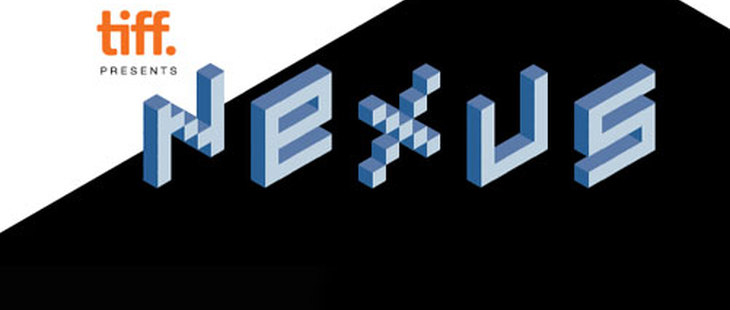

Last year, the novelist Nicholson Baker published a New Yorker essay about being initiated into video games by his teenage son. At once bemused, humbled, and awed, he seemed to find the experience a thrill, unnerving as it sometimes was. Describing the Hellenic bloodbath God of War III, Baker wrote: “The game, to a surprising degree, is about hacking away at half-naked women, or naked half-women. Whenever you see female breasts, you have a pretty good idea that the breasted person is going to die horribly, and soon.” It’s not just outsiders who recognize how problematic this industry can be with gender; the popular Gawker-networked blog Kotaku recently questioned constant uses of “bitch” in Batman: Arkham City, for example.
The Women in Film, Games and New Media Day, organized under TIFF Nexus’ aegis last Friday, gave breasted persons a chance to hack away. It began with a keynote presentation by the journalist Leigh Alexander, who observed that, while gamers have become increasingly diverse, the dominant media representations thereof, and your average development team, are still fairly homogenous. (She illustrated this with a still from the noted and rainbow-hued collaboration “Shiny Happy People,” to my possibly-solitary delight.) Alexander listed a few of the things she’s been called online: “shrew,” “babbling fangirl,” “attention whore,” “on a feminist soapbox for no reason.” As she suggested, that may be a side effect of games’ growing cachet; lots of nerds feel a sense of cultural power that didn’t exist before, and some of them will inevitably abuse it. But her talk argued that the medium is much broader than “testosterone and breast physics and explosives,” and that it needs a “lush palette.”
From there, one could say that the conference was divided between theory and practice. The following session presented highlights from “Frame Work II: Canada’s Screen-Based Workforce,” a study conducted by Women in Film & Television Toronto. It found that representation of women and visible minorities in said industries shrunk as seniority rose, that women in broadcasting earn 85.6% of the total workforce’s average salary, and that 41% of respondents (male and female) cited work-life balance as a “significant” or “severe” issue. If that wasn’t disheartening enough, during the ensuing discussion one panelist talked about the difficulty of convincing her teenage daughter – strong in math and science, but creative as well – that engineering or computer programming might be right for her.
At this juncture the schedule split in multiple directions, including “Intro to DIY Making” and “Feminism and Games.” If I’m attending a conference, and a timing conflict emerges, and one of the options is “Feminism and ______,” I’ll probably be at that panel. I had no qualms about my choice this time. Nick Taylor’s succinct lecture on “gaming masculinities” was one of the day’s best, both entertaining and provocative: “it might be facetious to come here and talk about how we can fix boys . . . in the discursive sense.” The York University post-doc discussed how “booth babes” make the homosocial space of gaming conventions safe for conventional masculinity, lauded the sexist-shaming feminist blog Fat, Ugly or Slutty, and proposed that it would be healthy for female competitive gamers to come in and “basically kick [adolescent boys’] butts around for a few hours.”
Or out-design them. Friday’s final session unveiled the results of the Difference Engine Initiative, a Hand Eye Society project (and Ada Lovelace shout-out!) to give some creative local women experience and mentorship in indie game design. Though the invitees came from a variety of professional backgrounds – Katie Foster’s was in animation, while Alex Leitch builds things like flame-throwing dance platforms – many of the finished titles had a political theme or subtext. Hannah Epstein’s forces you to survive prison and police brutality, while Adeline’s Elopement was created by an English nerd fed up with passive Victorian heroines. Then again, this program also inspired Kreayshawn: The Game. If the Difference Engine participants arrived at a single common conclusion, it was their heartening determination to keep making games.
—
Chris Randle is the Culture Editor at Toronto Standard.














